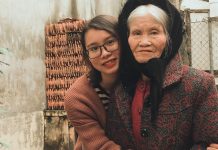Sadly, not everyone respects older people and there are many people (family members included) that consider them as easy prey.
Research by the Australian Institute of Family Studies shows that one-in-six people aged 65 years and over have experienced elder abuse. It’s a shocking statistic but even more alarming is that those working in the seniors’ sector believe the figures are closer to one-in-four, as many cases go unreported.
There are also 50 sexual assaults of people over 65 reported every week in Australia.
In recent months the WA Government has been endeavouring to raise awareness of elder abuse. Not-for-profit organisation, Advocare, is one group helping older Western Australians to access the right support and information to help protect themselves.
Advocare outreach advocate, Christine Zambonetti, says most people think of elder abuse only in the context of physical or sexual abuse, but in reality it is far broader than that.
“Elder abuse is not just physical violence or sexual abuse it includes coercive control, psychological abuse, neglect, financial abuse and socially isolating someone,” Christine says.
Christine added that a large number of people are too embarrassed to report abuse or won’t report it because they’re afraid of the repercussions of losing family support, as the perpetrators are often family members.
“There’s also a much higher incidence of abuse if someone has dementia or if they’re living in a residential care facility. Those living in rural and regional areas are also more likely to experience elder abuse.”
Coercive control is one form of abuse that Christine says often goes undetected and underreported.
“Coercive control is insidious. It usually happens slowly over time where someone takes over your life and you don’t realise until it’s too late. They will cut you off from friends, take control of your decisions and diminish your self-esteem,” she says.
Christine has worked in aged care for 15 years. She says there are a number of ways to help combat elder abuse. Appointing an enduring power of guardianship, which is a legally binding document, is a good place to start.
“Guardianship lets you choose someone to make decisions on your personal, lifestyle and medical treatment should you become unable to make these decisions yourself,” she explains.
“Make sure it’s someone who knows you well and is someone you really trust. It doesn’t have to be a family member as you can choose a close friend. Another essential document is an enduring power of attorney, which appoints someone to make financial decisions for you. It’s a good idea to appoint two people so that one person can’t take financial advantage of you.”
Christine adds that family members account for around 75 per cent of bad or unacceptable behaviour directed at older people. Sometimes abusive behaviour can happen by accident but it’s important not to let negative behaviour become the norm, so learning how to set clear boundaries and guidelines as to how you want to be treated is vital.
But by far the most important strategy is to have strong and regular social connections, because being socially isolated makes you a lot more vulnerable. Having regular contact with your friends, being part of a social club and simply getting out and about makes it easier for other people to keep an eye on you.
For free confidential assistance or advice, call Advocare on 08 9479 7566 or free call 1800 655 566. Help is also available via the WA Elder Abuse Helpline 1300 724 679.































